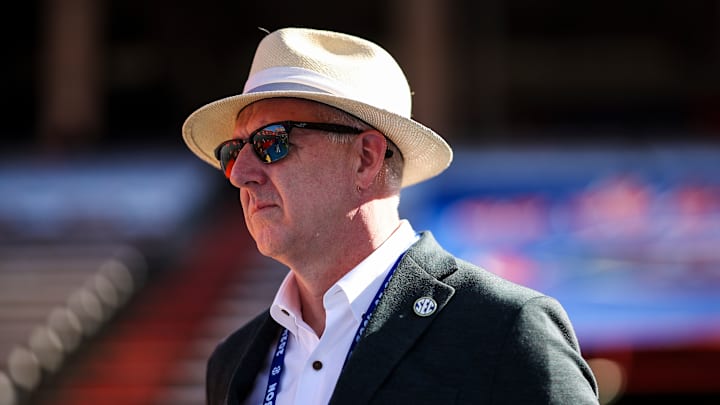Earlier this Summer, Judge Claudia Wilken finally signed off on the NCAA House Settlement bringing massive changes to College Sports. The most talked about change was the arrival of Revenue Sharing as each program would have a value starting with $20.5 million in 2025 that they could distribute directly to their athletes. Arguably the bigger change was a clearinghouse being put in place to ensure that NIL deals are actual deals based on a players brand not, just a program buying a player.
The rules and sentiments were clearly communicated the whole time, athletes could still earn NIL deals but, it would have to be because they're using their brand to benefit a company's brand. Early on, Collective deals are having a hard time getting approval with several deals already denied in the beginning of this process.
The big topic this week regarding the House Settlement comes as there are active negotiations going on as to whether or not traditional NIL collective deals should be approved.
College leaders are in active negotiations with House attorneys over a major piece of the settlement: whether to permit traditional NIL collective deals.
— Ross Dellenger (@RossDellenger) July 17, 2025
A decision may reshape enforcement and lead to a “softer cap,” Greg Sankey tells @YahooSports.https://t.co/epe7zFKNpI
While collectives keeping their power would benefit the athletes as they can earn more money, it would completely throw the idea of putting a salary cap into effect out the window and actually only make the landscape of the sport crazier. There's outspoken opponent to the challenge by the collectives in SEC Commissioner Greg Sankey who blasted everyone not abiding by the guardrails to Ross Dellenger.
"For how long have people been begging for guardrails? Well, now we have guardrails. Those broadly across the country that claim they wanted guardrails need to operate within the guardrails."Greg Sankey
The sudden shift so quickly after the House Settlement was approved makes it clear that collectives had planned all along to fight to keep their power rather than testing the new system. One of the primary goals of the House Settlement was to cut down on the impact these collectives had and control some of the spending but, it looks like that goal will be short lived.
Collectives have become a massive part of what College Football fans don't like about the sport as they've essentially turned recruiting into free agency. If Collectives remain a fixture of the sport, it's only going to make it harder to build continuity for the smaller schools but, the schools that feel they have an advantage will continue to push for collectives.
